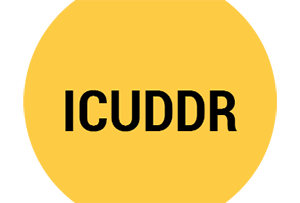ICUDDR NIDA mini-grants
Background
Most of the evidence for evidence-based prevention and treatment services promoted in low and middle-income countries was developed through research in high income, primarily English-speaking countries. These services have rarely been tested in the cultural, socio-economic, and physical or political environments in which low and middle-income countries implement them.
While research and program evaluation are a part of university faculty expectations globally, authors and research from low and middle-income countries are under-represented in the literature (Adams, 2006). While there are many reasons for this disparity, one is the capacity to conduct large scale research that leads to publishable outcomes.
This combination of evidence created under different conditions than those in which it is implemented, and lack of research coming from low and middle-income countries that could inform the development and implementation of EBP in low resource environments, leads to suboptimal outcomes. In addition, our lack of capacity to study differences in effect of commonly promoted EBPs in new contexts limits our understanding of what makes a practice evidence-based and what conditions are necessary to implement them. This project is designed to increase research collaboration between scientists in the United States and low and middle-income countries, and improve capacity for research in low and middle-income countries.
Approach
ICUDDR is soliciting applications for mini-grants of no more than U.S.D. $5000 to support researchers in low and middle income countries as defined by the World Bank. The grants are designed to overcome barriers in one of two areas: preliminary data collection and analysis or grant writing capacity. Click here for more information.

The end goal of the proposed project is that grantees will be able to participate in applications for funding in response to the National Institute for Drug Abuse Notice of Special Interest on international research, NOT-DA-21-064. Applicants will be required to describe their proposed research, the current status of the project, a proposed budget, the specific barriers to applying for funding for the study and how the planning grant will address those barriers.
Grantees will also be expected to participate in at least three virtual meetings of all grantees that will be focused on addressing specific aspects of improving proposal development. Didactic content in these virtual meetings will be presented by a NIDA project officer or experienced scientist from the U.S. or other country who has received NIDA funding in the past. Grantees will be expected to make progress on developing a proposal for submission for an R21 or R01 grant by February, 2023. Multisite studies are eligible and encouraged by NIDA and we welcome partnerships in the mini-grant applications. Please describe the partnership and role of each partner in the project abstract.
Based on the nature of the research of the awarded planning grants, ICUDDR staff will work with the grantee, NIDA staff, the College on Problems of Drug Dependence (CPDD) International Committee, and the network of researchers engaged in ICUDDR efforts to identify research partners/mentors that can work with grant recipients and potentially act as partners or principal investigators on the proposed research. Matches will be made based on research area of interest and specific skills deficits or requirements of the proposed project. The goal is that mentors will work with the grantee to jointly develop a proposal that is responsive the NIDA notice of special interest.
Application Process and Timeline
The application is an online form accessed via the ICUDDR website. Link to form here
Applicants are required to complete all sections of the form including obtaining signature from the appropriate university official by the submission deadline of 12:00 AM local time, January 15, 2022. No late applications will be considered. Applicants will be notified of the outcome of their application by February 4, 2022 and will be expected to begin work immediately. Download the signature form here to include with the application submission process.
Scoring Criteria
| Abstract of proposal is clear, achievable in the time frame and relevant to the announcement. |
45% |
| CV of the PI indicates experience and knowledge of research methods in addiction. |
10% |
| Description of key barriers to completion of research is clear and specific. |
15% |
| Description of how the funds will overcome the barriers is clear and specific. |
15% |
| Budget is reasonable and specific to project. |
10% |
Bidders Conference
ICUDDR will host a bidders’ conference at two different times on to answer any questions and describe the goals of the project. The first will be December 1 at 7:00 AM EST. Click here to Register. The second will be November 30 at 1:00 PM EST. Click here to Register. For confirmation of the time in your time zone, use an online tool such as WorldTimeBuddy. Use New York as your comparator. The bidders conference will be by webinar and will be recorded and posted for applicants’ reference.
ICUDDR new project "bidders conference" November 30, 2021
ICUDDR new project "bidders conference" December 1, 2021
Questions?